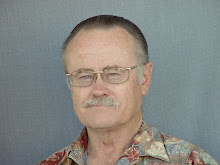Fear Not the Disabled -- Part 2
Retrieved from:
Editorial (2005). Fear Not the Disabled., Christianity Today, 49 (11), 28.
Database: Academic Search Premier
Continued from Part 1:
In the debate over human embryonic stem cells, Christians are right to defend the humanity and dignity of the embryo. But our well-reasoned words are unlikely to convince people who fear disease and incapacitation if we do not also demonstrate real pro-life compassion for a whole class already here--people with disabilities.
These neighbors are all around us. And we must not, like the Levite and the priest in Jesus' parable, pass by on the other side of the road. There are an estimated 50 million people with disabilities of all kinds in the United States, and 600 million worldwide. Each one, to borrow a phrase from the late Mother Teresa, is Jesus in "distressing disguise." Relatively few of us see past that distressing disguise to obey the Lord's command to do good unto "the least of these my brethren."
Tragically, the lives of individuals at risk are viewed as expendable. A recent report on assisted suicides under Oregon's Death with Dignity Act found that in 47 percent of the cases, one of the motives in the decision was "concern about being a burden on others."
In the Flanders region of Belgium, a study published in The Lancet found that almost half the newborns who died during one year were "helped" to do so by their doctors. According to a media report on the study, physicians believed the babies in question had no real chance of a "bearable future."But countless people with disabilities live full and productive lives. Regardless, Tada says, "We just don't know how to deal with any positive aspects of disability."
Continued in Part 3
Copyright of Christianity Today is the property of Christianity Today International and its content may not be copied or emailed to multiple sites or posted to a listserv without the copyright holder's express written permission. However, users may print, download, or email articles for individual use.
Editorial (2005). Fear Not the Disabled., Christianity Today, 49 (11), 28.
Database: Academic Search Premier
Continued from Part 1:
In the debate over human embryonic stem cells, Christians are right to defend the humanity and dignity of the embryo. But our well-reasoned words are unlikely to convince people who fear disease and incapacitation if we do not also demonstrate real pro-life compassion for a whole class already here--people with disabilities.
These neighbors are all around us. And we must not, like the Levite and the priest in Jesus' parable, pass by on the other side of the road. There are an estimated 50 million people with disabilities of all kinds in the United States, and 600 million worldwide. Each one, to borrow a phrase from the late Mother Teresa, is Jesus in "distressing disguise." Relatively few of us see past that distressing disguise to obey the Lord's command to do good unto "the least of these my brethren."
Tragically, the lives of individuals at risk are viewed as expendable. A recent report on assisted suicides under Oregon's Death with Dignity Act found that in 47 percent of the cases, one of the motives in the decision was "concern about being a burden on others."
In the Flanders region of Belgium, a study published in The Lancet found that almost half the newborns who died during one year were "helped" to do so by their doctors. According to a media report on the study, physicians believed the babies in question had no real chance of a "bearable future."But countless people with disabilities live full and productive lives. Regardless, Tada says, "We just don't know how to deal with any positive aspects of disability."
Continued in Part 3
Copyright of Christianity Today is the property of Christianity Today International and its content may not be copied or emailed to multiple sites or posted to a listserv without the copyright holder's express written permission. However, users may print, download, or email articles for individual use.
Labels: Disability


1 Comments:
This is a sad commentary on our generation. We must trust God to make "beauty out of ashes" even and especially when we can't comprehend or get a good answer to the question why...
Post a Comment
<< Home